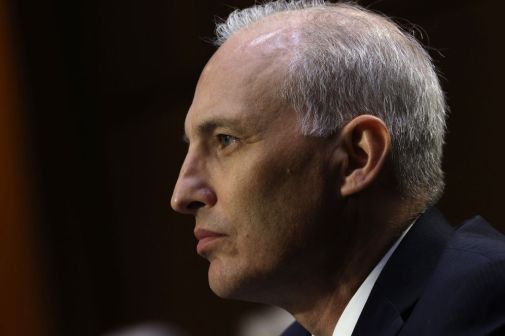DOJ disbands foreign influence task force, limits scope of FARA prosecutions

One of the first acts taken by Pam Bondi after being sworn in as attorney general was to disband an FBI task force that countered the influence of adversarial foreign governments on American politics.
In a memo issued Wednesday, Bondi wrote that the Department of Justice would be shifting resources in its National Security Division, including disbanding the FBI’s Foreign Influence Task Force, “to free resources to address more pressing priorities, and end risks of further weaponization and abuses of prosecutorial discretion.”
Bondi’s memo also states that the Department of Justice will now only refer criminal charges under the Foreign Agents Registration Act if they “alleged conduct similar to more traditional espionage by foreign government actors.”
The section of the memo outlining the changes offers no further detail or rationale for the decisions.
The FBI’s Foreign Influence Task Force was established by then-Director Christopher Wray in 2017, following the 2016 U.S. presidential election cycle, during which Russian intelligence hacked into the Democratic National Committee’s email system, probed election-related infrastructure for vulnerabilities, funded domestic protests, and conducted influence operations on social media.
Wray, who was nominated to lead the FBI by Donald Trump, described the task force’s work as an effort to leverage the bureau’s collective expertise and resources in counterintelligence, cybersecurity and counterterrorism to investigate, call out and disrupt foreign-led efforts to interfere in American elections.
In a 2018 speech, Wray said the task force’s work revolved around three pillars: working across all 56 FBI field offices to investigate emerging foreign influence campaigns, quickly sharing information with other intelligence agencies, federal agencies, state and local governments and election officials, and working with private technology companies to close off cyber vulnerabilities and share information around influence campaigns on social media.
“It’s going to take all of us working together to hold the field, because this threat is not going away,” said Wray, who stepped down this past year amid reports that Trump planned to fire him after taking office.
FARA requires that anyone in the U.S. accepting payment from or representing a foreign government must register and disclose such information to the federal government. It has been a key tool for law enforcement agencies in foreign influence investigations, notably during Robert Mueller’s special counsel investigation of potential collusion between Trump’s campaign and the Russian government.
For instance, Paul Manafort, Trump’s campaign manager in 2016, pleaded guilty in 2018 to violating FARA by declining to disclose that he was being paid by the government of Ukraine and former President Viktor Yanukovych. Manafort was also accused by Mueller and in a separate report released by the Senate Intelligence Committee of handing over Trump campaign polling data to Konstantin Kilimnik, who was later identified by the Treasury Department as a Russian intelligence asset.
Manafort was later pardoned by Trump before he left office in December 2020.





